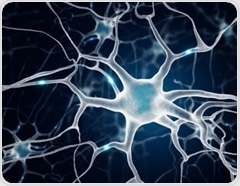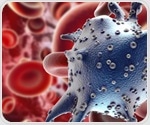
|
|
|
| |

|
|
| |
The latest men's health news from News Medical |
|
|
|
 | | |  Researchers reveal why SuperAgers retain youthful brain cell signatures into their 80s Researchers reveal why SuperAgers retain youthful brain cell signatures into their 80s Researchers used single-nucleus RNA sequencing and chromatin accessibility profiling to map human hippocampal neurogenesis across adulthood, aging, and Alzheimer’s disease. They found that chromatin accessibility changes, more than gene expression alone, distinguish healthy aging, preclinical pathology, Alzheimer’s disease, and cognitive resilience in SuperAgers. | | | | |  Higher tyrosine levels linked to shorter lifespan in major UK Biobank analysis Higher tyrosine levels linked to shorter lifespan in major UK Biobank analysis Researchers analyzed over 272,000 UK Biobank participants and used Mendelian randomization to investigate whether circulating phenylalanine and tyrosine influence lifespan. Genetically predicted higher tyrosine levels were linked to shorter lifespan, particularly in men, while phenylalanine showed no independent effect after adjustment. | |
|
|
|  | | | | |  Social media muscle content raises steroid use intentions in young men Social media muscle content raises steroid use intentions in young men A study links muscle-focused social media content to increased intentions to use anabolic steroids among young men, highlighting risks of body comparison. | |  | | | | |  Living near nuclear power plants is associated with higher cancer mortality, national US study reports Living near nuclear power plants is associated with higher cancer mortality, national US study reports A nationwide ecological study of US counties from 2000 to 2018 found that greater proximity to operational nuclear power plants was associated with higher cancer mortality rates, particularly among adults aged 65–74 years. The analysis used inverse-distance weighting within 200 km and adjusted for demographic, socioeconomic, environmental, and healthcare factors, but did not measure individual radiation exposure. | |  | | | | |  Heavy alcohol intake is associated with dangerous belly fat accumulation, large UK study shows Heavy alcohol intake is associated with dangerous belly fat accumulation, large UK study shows In a large UK population cohort, higher weekly alcohol consumption was dose-dependently associated with greater visceral fat mass measured by DXA, independent of total body fat. Heavy drinkers showed over 10% higher proportional visceral fat compared with lower consumption groups, a pattern linked to increased cardiometabolic risk. | |
|
|
|  | | |  Researchers analyzed a state-representative US sample to examine whether negative social ties, termed “hasslers,” are associated with epigenetic age acceleration and faster biological aging. Each additional hassler was linked to roughly nine months higher biological age and a 1.5% faster pace of aging, with particularly strong associations for mental health outcomes. Researchers analyzed a state-representative US sample to examine whether negative social ties, termed “hasslers,” are associated with epigenetic age acceleration and faster biological aging. Each additional hassler was linked to roughly nine months higher biological age and a 1.5% faster pace of aging, with particularly strong associations for mental health outcomes. | | | | |  A 20-year follow-up of older adults in the ACTIVE randomized trial linked to Medicare claims found that speed of processing cognitive training with booster sessions was associated with a significantly lower risk of diagnosed Alzheimer’s disease and related dementias. Memory and reasoning training did not show comparable long-term reductions in dementia risk. A 20-year follow-up of older adults in the ACTIVE randomized trial linked to Medicare claims found that speed of processing cognitive training with booster sessions was associated with a significantly lower risk of diagnosed Alzheimer’s disease and related dementias. Memory and reasoning training did not show comparable long-term reductions in dementia risk. | | | | |  An exome-wide association study of nearly 38,000 smokers from the Mexico City Prospective Study identified rare coding variants in CHRNB3 that are associated with substantially fewer cigarettes smoked per day. Cross-ancestry analyses in European and East Asian datasets support a role for the β3 nicotinic receptor subunit in modulating smoking intensity. An exome-wide association study of nearly 38,000 smokers from the Mexico City Prospective Study identified rare coding variants in CHRNB3 that are associated with substantially fewer cigarettes smoked per day. Cross-ancestry analyses in European and East Asian datasets support a role for the β3 nicotinic receptor subunit in modulating smoking intensity. | | | | |  The parallels between ultraprocessed foods and tobacco raise concerns about addiction and health risks, urging policymakers to implement effective regulations. The parallels between ultraprocessed foods and tobacco raise concerns about addiction and health risks, urging policymakers to implement effective regulations. | | | | |  Research shows higher fiber consumption may lower coronary heart disease risk in night shift workers, suggesting dietary adjustments for better health. Research shows higher fiber consumption may lower coronary heart disease risk in night shift workers, suggesting dietary adjustments for better health. | | | | |  A recent commentary argues that US measles and pertussis outbreaks are not simply the result of vaccine hesitancy but reflect weakened immunization policies, permissive exemptions, and underfunded public health systems. The authors contend that policy environments determine whether pockets of low coverage escalate into large-scale, preventable outbreaks. A recent commentary argues that US measles and pertussis outbreaks are not simply the result of vaccine hesitancy but reflect weakened immunization policies, permissive exemptions, and underfunded public health systems. The authors contend that policy environments determine whether pockets of low coverage escalate into large-scale, preventable outbreaks. | | | | |  A new study using serial liquid biopsies to track how metastatic prostate cancer evolves under treatment pressure showed that androgen receptor (AR) alterations consistently emerged and were linked to poorer outcomes across therapies. A new study using serial liquid biopsies to track how metastatic prostate cancer evolves under treatment pressure showed that androgen receptor (AR) alterations consistently emerged and were linked to poorer outcomes across therapies. | | | | |  A multi-institutional study led by Mayo Clinic and published in Cell Reports Medicine reports that pairing a next-generation immunotherapy with standard hormone therapy before surgery may help overcome a long-standing barrier in early-stage prostate cancer treatment. A multi-institutional study led by Mayo Clinic and published in Cell Reports Medicine reports that pairing a next-generation immunotherapy with standard hormone therapy before surgery may help overcome a long-standing barrier in early-stage prostate cancer treatment. | | | | |  This study reveals links between socioeconomic deprivation and gut microbiome changes, highlighting potential pathways to mental and metabolic health issues. This study reveals links between socioeconomic deprivation and gut microbiome changes, highlighting potential pathways to mental and metabolic health issues. | | | | |  Discover the critical bioanalytical factors that influence radiopharmaceutical drug development, from assay design to radioactive sample handling. Discover the critical bioanalytical factors that influence radiopharmaceutical drug development, from assay design to radioactive sample handling. | | | | |  Fernando Viera Reyes needed a biopsy for possible prostate cancer when the Trump administration sent him to an immigration detention center in California's Mojave Desert. Fernando Viera Reyes needed a biopsy for possible prostate cancer when the Trump administration sent him to an immigration detention center in California's Mojave Desert. | |
|
|
|
|
|
|
|